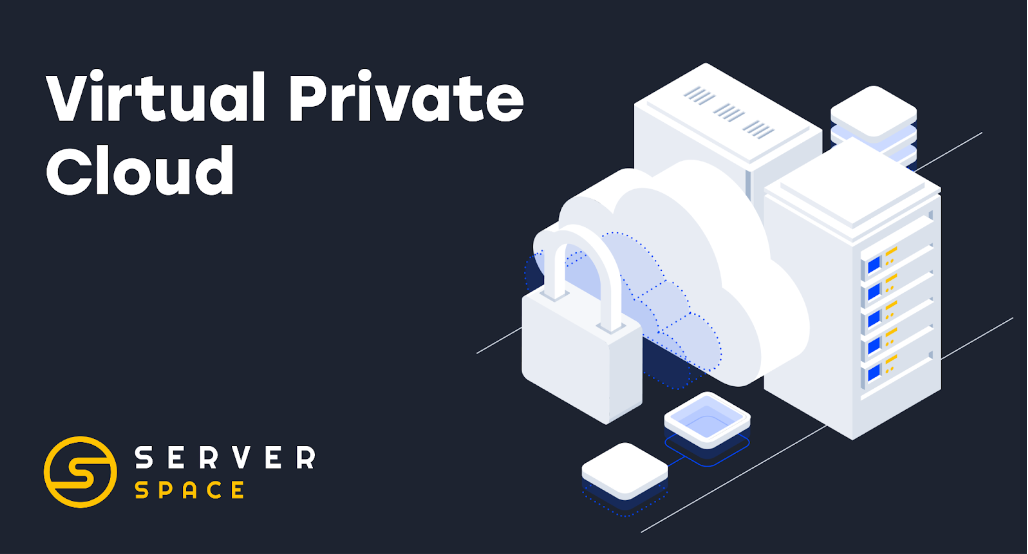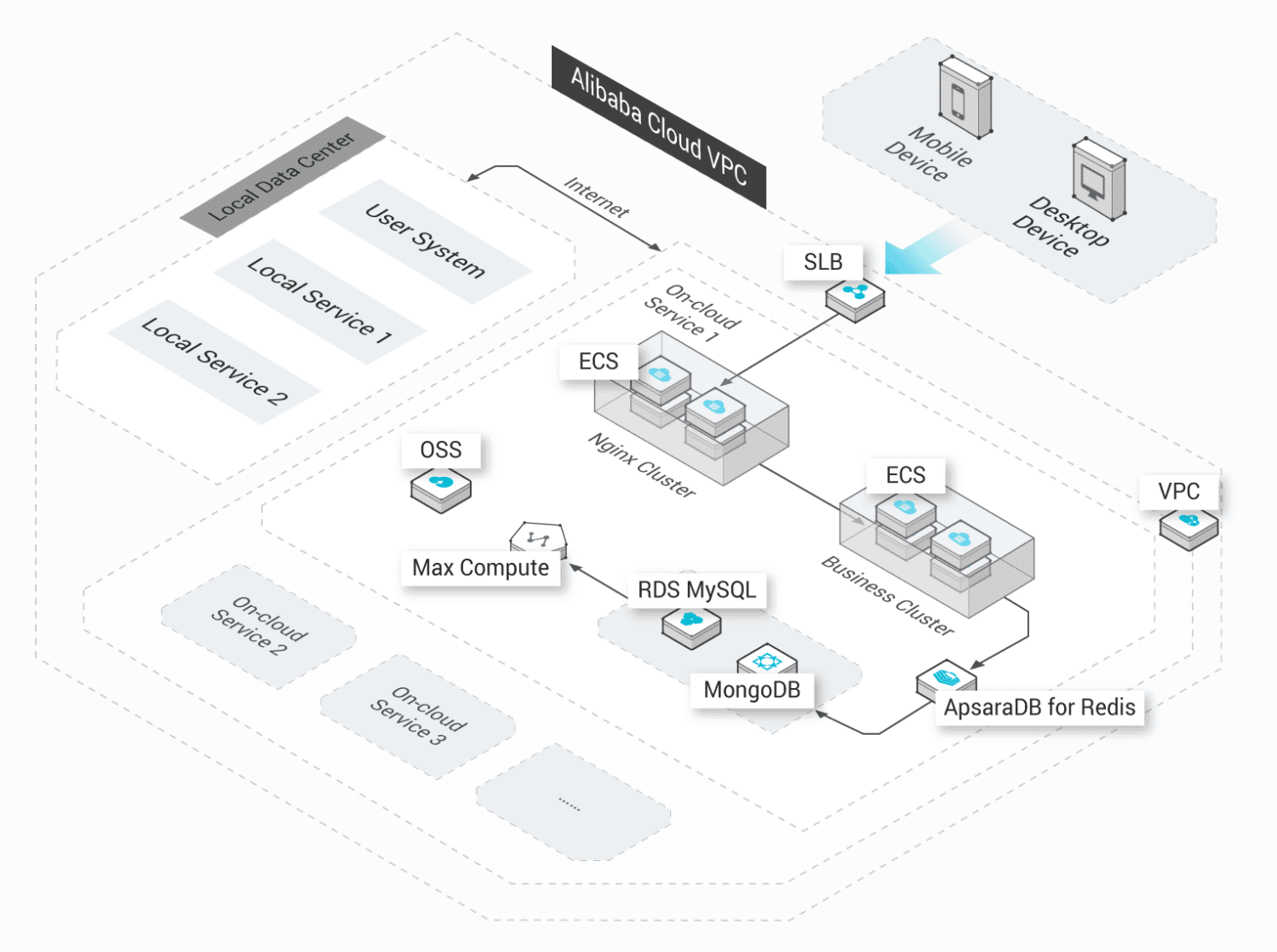Cloud security is a big concern when running codes and storing private data. A virtual private cloud might be the solution.
What is a Virtual Private Cloud (VPC)?

A virtual private cloud is an isolated private cloud hosted within a public cloud. You can securely execute code within a VPC. Moreover, you can store confidential data and host websites. The private clouds can be hosted remotely using some public cloud providers.
Read more about Virtual Private Cloud.
In this post, I will be discussing some of the best VPC providers for your businesses.
Amazon VPC
Amazon’s virtual private cloud provides an easy process to set up VPC. The setting, managing, and validating of the network take less time taking time. Moreover, it is easy to customize your virtual network by selecting your IP address range. It also provides the creation of subnets and the configuration of route tables.
Amazon VPC provides a secure network where they monitor connections. Additionally, it includes the screening of traffic. Overall, the customer gets a safe environment with restricted access inside the virtual network.
Amazon VPC has an environment where it is easier to place resources. Clients can quickly start VPC setup in the AWS service console. In addition, customers can add valuable services (resource instance) like Amazon Relational Database and Amazon Elastic Compute Cloud.
Google VPC
Google provides one global virtual network covering all branches or departments of a company. Organizations can quickly increase the range of IP addresses.
Google VPC provides the following features:
Create Networks: Google VPC offers auto and custom modes to create a VPC network.
Create an auto-mode VPC: In auto mode, google creates one subnet for every cloud region. The system, by default, adds new subnets in the areas. There is a predefined set of ranges In IPv4. This mode does not support subnets with IPv6 ranges.
Create a custom mode VPC: In custom mode following rules are required to create or edit a subnet:
- The project and VPC network names should be different (membership is an exception).
- Subnet’s name should be unique within a project. Subnet’s name is not editable after creation. Deletion of the subnet is possible, however.
- To delete a subnet, ensure that there is no resource using it.
- There is a restriction that a subnet should have a primary IPv4 range, whereas there can be multiple secondary IPv4 ranges.
- The subnets must not conflict in primary and secondary ranges.
Modify Networks: Google VPC allows the following modifications:
- Convert an auto-mode VPC to a custom mode
- Change the dynamic routing mode
- Network Deletion
Serverspace VPC
Explore Serverspace for a great Virtual Private Cloud (VPC) experience, offering a logically isolated public network segment. Maintain a high level of security without exposing your network to the external world. Deploy globally in five key markets — USA, Europe, Canada, Turkey, and Kazakhstan — with a robust SLA of 99.9%. Enjoy the assurance of complete privacy!

- Regulatory Compliance: Prepare your network to meet industry regulations, including PCI, SOC, and more.
- Total Control: Control inbound and outbound access to subnets.
- Free Isolated Cloud: Build an isolated cloud for free, ensuring both security and cost savings.
- Reduced Costs: Explore cost-effective solutions without compromising on security.
- Lightning Speed: Connect your cloud servers to a high-speed network with up to 1 Gbps bandwidth.
- Agile Scaling: Easily scale your network to meet the evolving needs of your applications and business.
Key Features of Serverspace:
- Quick Sign-up: Get started with just your email.
- Easy Configuration: Customize your server with a simple calculator for cores, RAM, storage, and bandwidth.
- Latest Tech: Powered by the newest Intel CPUs running at 3.1 GHz.
- Speedy SSDs: Enjoy fast SSDs with impressive speed.
- Instant Deployment: Your server is up in less than a minute.
- Fast Connectivity: Enjoy up to 1000 Mbps and unlimited traffic.
- 24/7 Support: Our human support team is here day and night for quick help.
Serverspace provides a secure, scalable, and cost-effective Virtual Private Cloud solution tailored to meet the demands of a dynamic business environment.
Azure Virtual Network
Azure virtual networks build a secure environment, having isolation where clients can safely run virtual machines and applications.
Azure also has a provision for hybrid infrastructure. The users can connect to data centers in their locations. Azure allows the client to bring their IP addresses and DNS servers. The user has secure connections with an IPsec VPN.
Azure provides low-latency resources where users can safely connect to virtual networks. The clients seamlessly connect networks, where they can send traffic over the Microsoft networks. There is no need for public internet, gateways, or encryption required. Azure networking also allows hybrid mode. The clients can use machines on their site.
The azure virtual network keeps virtual machines and computes resources private yet routes traffic on public networks. The scalability is automatic for IP addresses required for outbound connectivity. Azure also provides networking using software definition, which reduces the bandwidth needed to compute resources.
DigitalOcean VPC
DigitalOcean provides a simple, secure, yet customizable VPC.
Clients can quickly build VPCs. The dashboard is developer-friendly. Moreover, CLI and APIs are available. DigitalOccean has an automatic system to create VPCs for client resources if the client is not interested in customized network configuration.

Besides the simplicity, the VPC is a logically isolated network for cloud resources. The client gets more control over the communication of resources in VPC. The company provides an environment that exhibits onsite-premises to the clients.
Many clients want to do customization according to their exact needs. The users can specify the range of IP addresses, which helps to connect more networks. Even the clients can configure firewalls to get more control over incoming and outgoing traffic.
Alibaba Cloud VPC
Alibaba provides the VPC with ease of creation for an isolated network environment. They offer customization of the IP address range and network segmentation.

The clients can configure the routing table and gateway.
Benefits
The VPC has an isolated network environment. Their network is flexible with IP address and route table configuration. The logical isolation between different instances of VPC is available at Layer 2.
Alibaba provides a free, fully isolated VPC environment. The VPC is scalable, offering hybrid cloud architecture with multiple products. It is easy to manage various internet portals.
Features
MAC Layer Isolation: Using overlay technology, Alibaba VPC services create virtual networks on physical networks. They use Vxlan for isolation, thus providing complete isolation between various VPCs. As discussed earlier, the isolation is available at Layer 2 (i.e., MAC layer).
Ultimate customizations: The clients can plan and manage the network according to their specific requirements. The customization includes defining the IP address range, route table, gateway, and network segment.
VPC Subnetting: The users can do subnet division. It is possible to use virtual switches to divide the private IP address of VPC into multiple subnets. Moreover, the virtual switch helps to deploy applications and services on demand.
Virtual routers and express connect facility: Configuring virtual routers is possible, which means setting the route rules according to business requirements. The VPC has an express connect facility that helps establish interconnection between different regional VPCs.
HUAWEI Cloud VPC
Huawei’s virtual private cloud provides virtual private networks that help to isolate online resources. The web offers secure communication of cloud resources over the internet and intranet.
Features
The main features of the network include easy connectivity, security, reliability, high-speed bandwidth, and seamless scaling. Let’s discuss very briefly:
Simplicity: It is simple to add elastic container services in the same VPC, whereas ECSs may exist in different zones. Also, it is easier to control communication between VPCs.
Secure and Reliable: Security is available through the isolation of network resources. The traffic between instances and subnets is reliable.
High-Speed Bandwidth: They provide dynamic and static border gateway protocols. Therefore, clients can choose anyone as per requirement.
Seamless Scaling: There is a provision for the hybrid mode that clients can use and connect onsite machines and networks.
Tencent Cloud

Tencent cloud provides a stable, flexible, and secure private network having the following benefits:
- High Availability
- High-performance Internet
- Diversified Access
- Multi-dimensional Security
- Visual Management
- Elastic Scalability
- Optimal Costs
- Service Integration
Features
Tencent cloud has the following features:
Software-defined network: The client can customize IP address ranges and routing schemes using a dashboard or APIs. It is easy to define multiple subnets. The technical team is available to maintain and optimize the resources.
Elastic internet connection: Tencent’s cloud internet connectivity is flexible with high performance, which includes elastic IP and network address translation gateway. The elastic IP address is public and thus independently available for internet access.
Hybrid Cloud Deployment: The organizations can quickly deploy a hybrid cloud using a public IPsec, which will be encrypted and thus secure. The connection of resources between VPC and onsite servers will be stable and reliable.
Interconnection with Cloud Resources: Both classic and peering connections are available to connect resources between VPC and other clouds. The users can easily connect resources from different clouds in the VPC. PC service is available for cross-account and cross-region interconnection of VPCs.
The connection enables cloud virtual machines and cloud databases to access each other.
Security Control: The client can use access control lists and security groups to access control at the resource level and the port. Therefore, users can grant minimum permissions for better network security.
The access control list is a virtual firewall for better control of inbound and outbound traffic. Thus, it is possible to accept only the required data packets.
Conclusion
In this article, I’ve discussed virtual private clouds and their benefits. I have outlined the top cloud giants featuring the VPCs.
A good VPC is one that provides easy migration, economical solutions, security, tools support, network definition, standards compliance, etc. Another critical factor is the ease of use, which includes the creation, modification & deletion of subnets.
Each business/ client has their set of requirements. It is difficult to put one VPC solution as the best. You must check the available features and benefits and compare them with your list of required ones.





